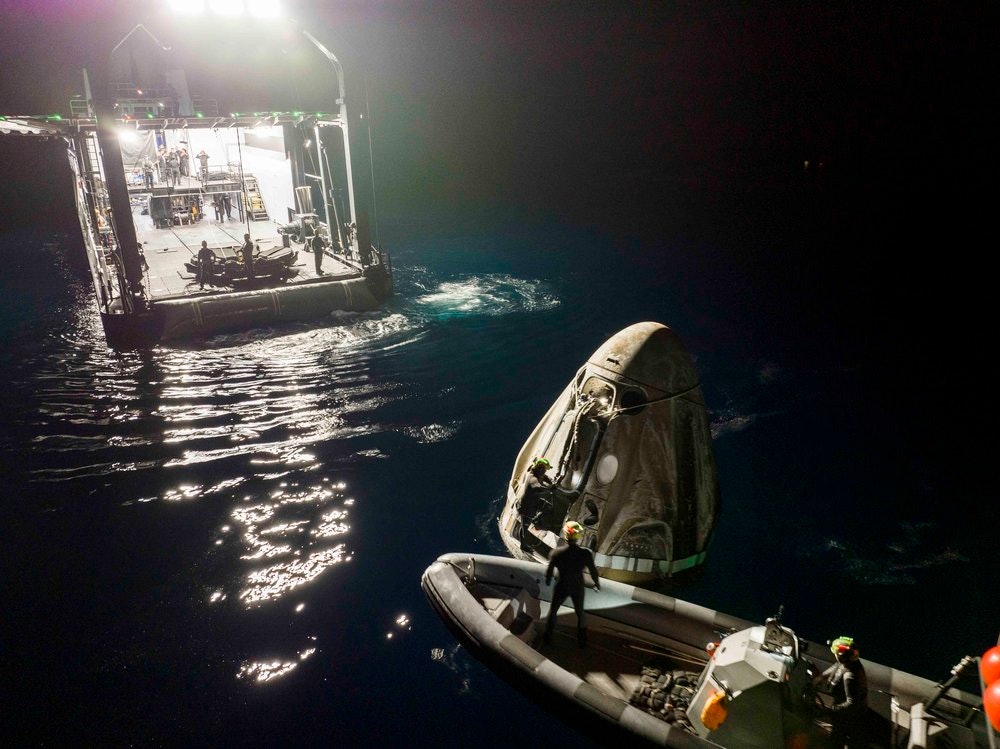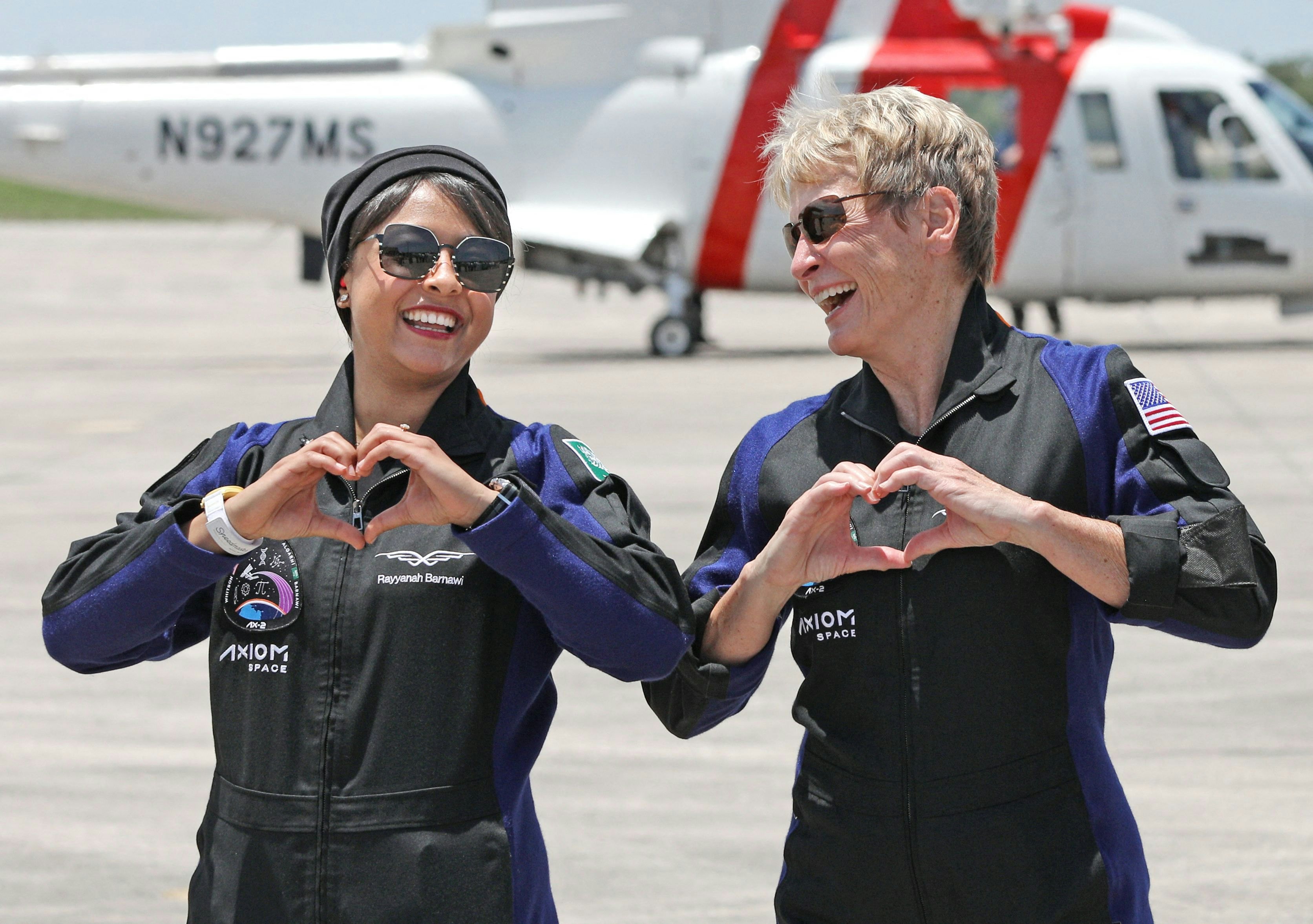
Close to midnight on May 30, four passengers inside a SpaceX Crew Dragon capsule splashed down in the Gulf of Mexico. Their arrival on Earth signaled the end of Ax-2, the second private mission to the International Space Station.
Commander and former NASA astronaut Peggy Whitson, pilot John Shoffner, and mission specialists Ali Alqarni and Rayyanah Barnawi spent nine days in orbit around Earth, with the bulk of their time on board the International Space Station.
During their stay, the crew conducted research on stem cells, video chatted with students on the ground, and collected data about their experiences in microgravity to further scientific understanding of how humans fare off-Earth.
The Ax-2 crew followed in the footsteps of their peers on Ax-1, which was the first private mission to the ISS that docked last year. However, the first crew of four spent roughly 17 days in space — which was almost a week longer than scheduled due to weather delays.
Axiom Space, the company that led both missions, has an ambitious goal: to build the first commercial space station orbiting Earth. Sending civilian crews to the ISS helps the company plan for that vision, which comes at a time when NASA plans to decommission the ISS in the next decade.

And like all commercial space travel, the Axiom missions open the door to passengers who aren’t traditional astronauts — but have access to considerable sums of money. Shoffner, a businessman from Tennessee, bought his ticket aboard Ax-2 for an undisclosed amount, though the Associated Press reports that tickets were previously listed by Axiom at $55 million a pop.
Alqarni, a fighter pilot in the Royal Saudi Air Force, and Barnawi, a scientist, were both sponsored by the Saudi government. They were the first Saudi nationals to fly to space since 1985, when Sultan Salman al-Saud flew on board the Space Shuttle Discovery. Barnawi was also the first woman from Saudi Arabia to ever go to space.
If all goes according to plan, Axiom could send many more space travelers into low-Earth orbit in the future. The company says that the first modules of its space station are being prepared for launch by 2025 — which would mark a huge milestone for commercial flight.







